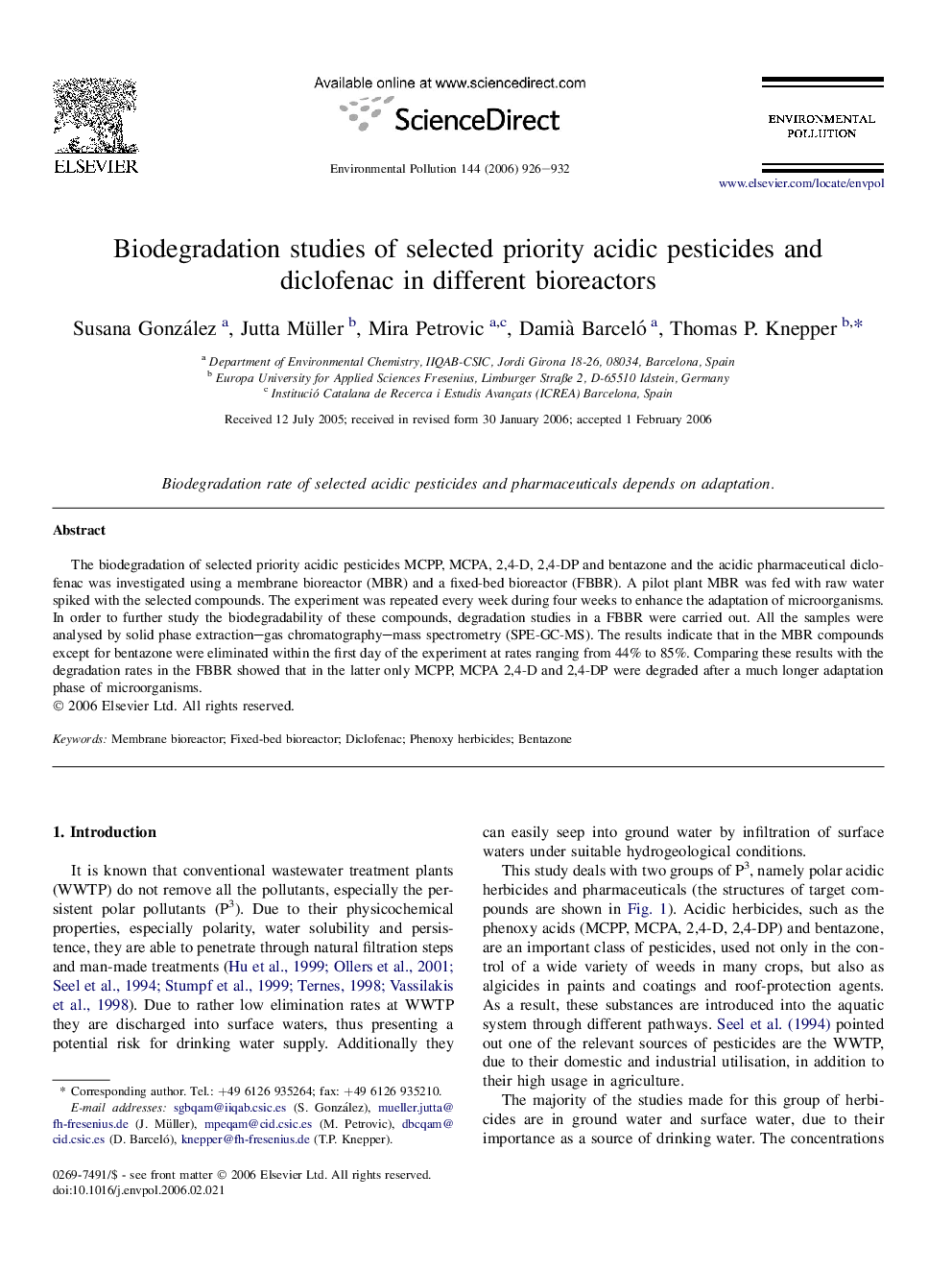| Article ID | Journal | Published Year | Pages | File Type |
|---|---|---|---|---|
| 4427329 | Environmental Pollution | 2006 | 7 Pages |
The biodegradation of selected priority acidic pesticides MCPP, MCPA, 2,4-D, 2,4-DP and bentazone and the acidic pharmaceutical diclofenac was investigated using a membrane bioreactor (MBR) and a fixed-bed bioreactor (FBBR). A pilot plant MBR was fed with raw water spiked with the selected compounds. The experiment was repeated every week during four weeks to enhance the adaptation of microorganisms. In order to further study the biodegradability of these compounds, degradation studies in a FBBR were carried out. All the samples were analysed by solid phase extraction–gas chromatography–mass spectrometry (SPE-GC-MS). The results indicate that in the MBR compounds except for bentazone were eliminated within the first day of the experiment at rates ranging from 44% to 85%. Comparing these results with the degradation rates in the FBBR showed that in the latter only MCPP, MCPA 2,4-D and 2,4-DP were degraded after a much longer adaptation phase of microorganisms.
